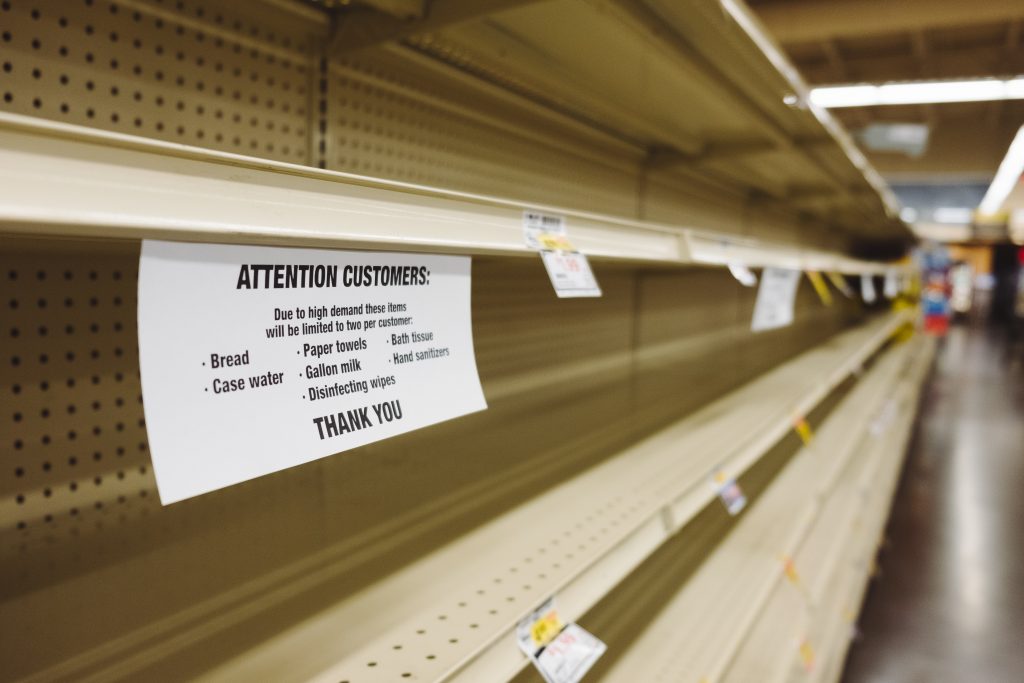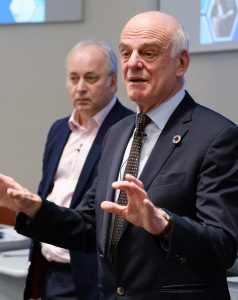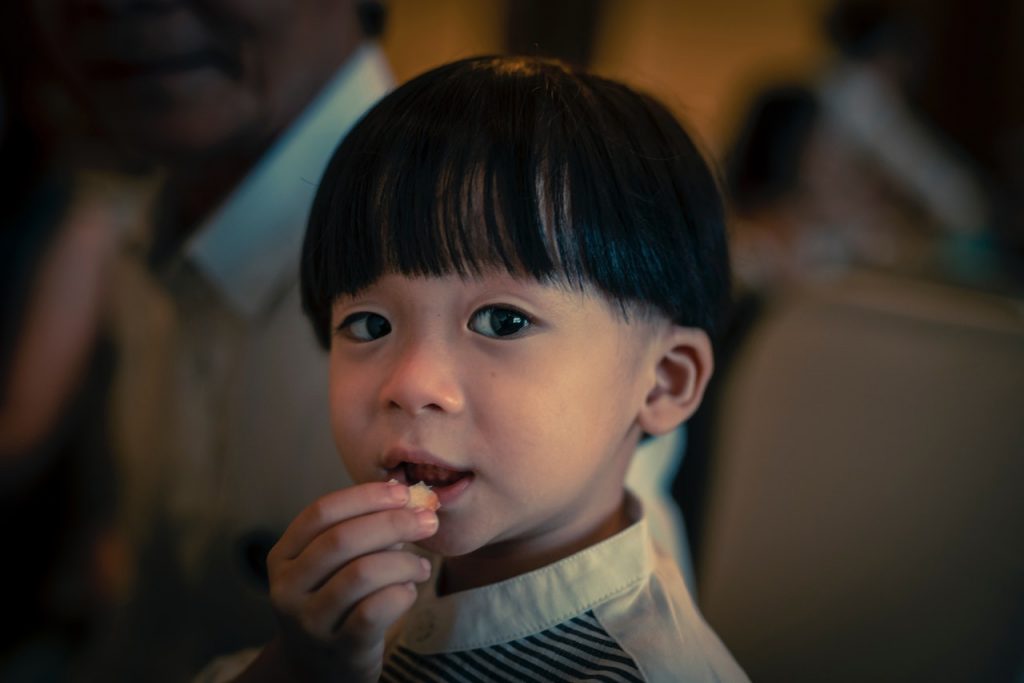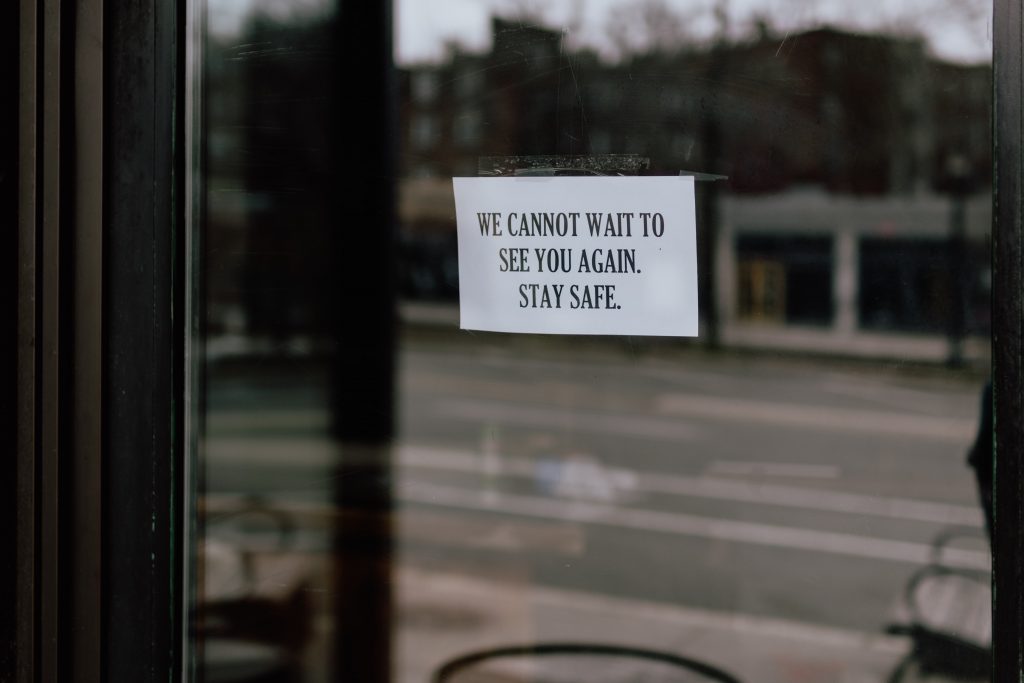
Empty supermarket shelves have become synonymous with life amid coronavirus.
But the impact of the pandemic on food security goes far beyond the common frustrations of stockpiling driven by fear and a scarcity of pasta.
Restaurants and catering outlets have closed, food markets have drawn their shutters, social distancing and sickness have massively burdened workforces, and restrictions on movement have created a chink in the supply chain. All of this has created immense pressure on supermarkets that are having to cope with the ever-increasing demands, on farmers who are losing their clientele and are unable to distribute their produce, and on families who struggle to put food on their plates.
With food, nutrition and health inextricably linked, we spoke with Dr David Nabarro, IGHI Co-Director and food systems expert, to explore this complex and pressing situation further and find out what it could mean for individuals, communities and governments across the world.
Is food security amid coronavirus being given due attention?

“Every community needs to focus on food and other essential requirements that are becoming harder to access as a result of both the pandemic itself, and the containment measures that countries are having to adopt.
“These containment measures are not optional and are the only way to get on top of this pandemic. But they will interrupt the economy. And they are also driving a rapid increase in hunger in all regions across the world, particularly in developing countries, as poor people on daily wages or working in the informal sector are unable to collect the cash they need to buy their essentials for life.
“This is being exacerbated by anxiety-driven stockpiling that is causing prices of food to rise; in some areas we’ve witnessed a 5 or 6-fold increase in the rise of essential products like cooking oil and flour.
“This is a global issue, but it’s worse in poor settings, and it’s occurring with great speed. This is putting even more urgency on the need to establish public health defences everywhere, so that life can restart.”
What about other vulnerable groups?
“Many school children get essential food intake from their school meals. With schools closed, these children are not receiving this valuable nutrition. This also means that households dependent on this free food are having to find the resources they need to feed their children.
“The same applies to old people receiving food support, such as ‘meals on wheels’, which may have stopped. So households are again having to find the extra cash to feed older people, too.”

With governments fighting to prevent their economies from collapsing, is the onus being passed on to charities?
“In the past, many poorer people received a lot of support from NGOs, but these organisations are reporting a massive drop in their income. This is coming at a time when the world is going to depend on them more and more, and their capacity to respond will be limited. This is adding to an already massive problem.
“We are seeing huge increases in food insecurity and hunger, and they are only anticipated to worsen. If people can’t get food they will get frustrated, and they will move to places where they can find food. If they are prevented from doing so because of lockdowns, then this could cause unrest.
“There is therefore an urgency to sort this out, and I am engaging with people who are very focussed on this.”
And what about the farmers producing this food, how will they cope?
“Farmers will likely have difficulties accessing the things they need to produce food – seeds, fertilisers, etc. Farmers also need labour on their land, but worldwide restrictions on movement are creating problems sourcing workers. Looking ahead, this will generate supply issues.
“Farmers are also coping with a sudden crash in their markets due to restaurant closures, and with distribution issues due to restrictions on movement across and between countries, meaning perishable goods like fruits and vegetables are left to rot.
“All of these factors individually can make massive shocks to food systems. But taken together, this problem is huge, and it’s global. It is urgent we do something about it. And the only way we can get out of this is by concerted action and ensuring good quality public health in all communities.”

Who needs to take action to improve food security?
“Everybody has a role. Local authorities need to identify where there is hunger and provide targeted cash support. To prevent profiteering, local governments must also ensure that increases in the price of food are justified.
“Governments also need to make sure that people who work in the food sector are considered essential, like those who work in health. Finally, we must help farmers. Those falling short of cash as they are unable to distribute their food should receive help. We’re already talking to businesses about changing their distribution methods, shifting away from central distribution points to mobile methods that can more easily shift key items.
“But the most important thing is to know where people are hungry or likely to be, and making sure that they get support.”
What about us – what can we as citizens do to help?
“We all need to be prepared and willing to help where we can. Even in the most affluent societies, this kind of crisis can tip people over the edge into poverty. We need to be aware of this. And we need to keep giving to NGOs, who are experiencing a huge income drop. If we trust them, we should contribute, as they are able to get essential resources to people all over the world.
“And when this situation ends, we should revisit how we relate to farmers. They are so vital. Much like health workers, they have not always been treated with the respect that they deserve.”
Dr Nabarro is a WHO Special Envoy on COVID-19. He curates the Food Systems Dialogues and in 2018 won the World Food Prize In recognition of his successful leadership activities to galvanize policy-makers to prioritise food and nutrition.
One comment for “Food security during COVID-19: “We must respect farmers as we do health workers””